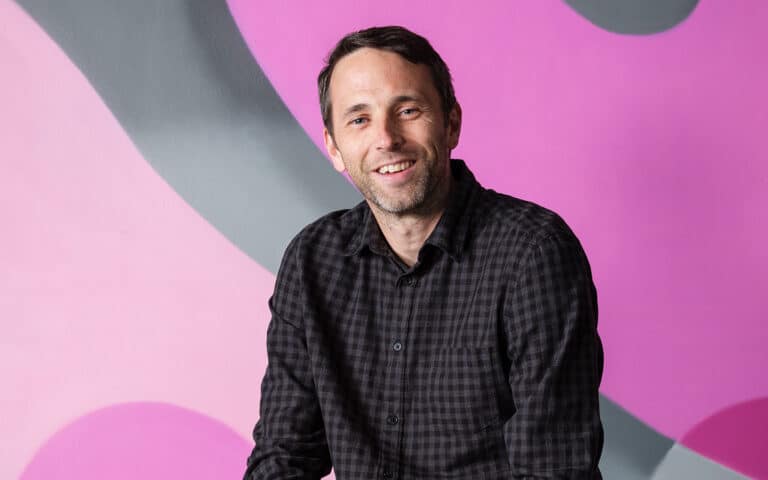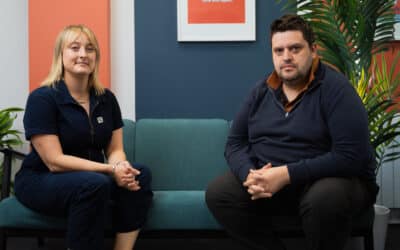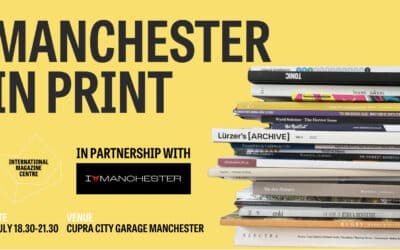Adam Gowland is a technical director at Cargo Creative.
Based in North Shields, the design and digital agency was founded in 2009 by Paul Hart. Now, Cargo Creative says it is in an ‘exciting period of growth’ following a recent award win in the North East.
From working in the Civil Service to joining the agency back in 2013, Gowland shares his career journey and tips to those either interested in agency life or roles in web development…
How did you first get into your industry?
After finishing university, I began applying broadly for job opportunities and took on a temporary role in the Civil Service, focusing on administrative tasks. Outside of work, I continued coding and started assisting friends with their websites. This led me to transition into communications and then IT roles. The Civil Service was very different to agency life.
My involvement with Cargo began when I collaborated with Paul and his team on a project as a side venture. We developed a strong working relationship, and when a position became available at Cargo, it was a no brainer for me to embrace the opportunity and fully transition into agency life.
What do you love about your job?
What I love most about my job is the variety it offers; each day presents new challenges and opportunities. I greatly appreciate working alongside colleagues who are both exceptionally skilled and genuinely supportive. It’s rewarding to witness our long-term clients, some of which have been with Cargo longer than I have, thrive and see their businesses grow stronger over time.
Additionally, meeting new clients and learning about their unique stories is always inspiring. Being part of a rapidly evolving industry keeps the work dynamic and exciting. No day is the same!
Who – or what – has inspired you in your career?
The online Dev community isn’t always a nice place; people looking for help don’t always explain themselves particularly well, most likely due to pressure from looming deadlines. Those who do offer help can face torrents of abuse, and go unappreciated.
A few years ago, we won a project that required using the Laravel framework, so I delved into their ecosystem for support. Mohamed Said, the first employee of Laravel, became a significant source of inspiration for me. Although we never exchanged messages directly, his responses to others’ questions were consistently positive and helpful. His approach was a real breath of fresh air and has stuck with me ever since.
What are the biggest challenges about your job?
Personally, one of the biggest challenges is the lack of time – there never seems to be enough hours in the day or days in the week. Additionally, finding time to switch off and fully disconnect from work can be difficult.
Professionally, the rise of AI presents some daunting questions. While it’s currently a source of amusement due to error-filled code, or poorly written content, the advancement we’re seeing means the industry could be unrecognisable in a few years time, if not sooner.
What skills have been the most crucial to you succeeding in your career so far?
Being a team player is essential, as it’s important to collaborate effectively with both colleagues and clients.
It’s also important to understand that no one can have all the right answers all the time! There are often situations where there isn’t a single correct answer, and recognising this is key.
Additionally, maintaining honesty with both clients and colleagues has been fundamental to building trust and achieving success.
What was your first salary and what could someone getting into the industry expect to earn nowadays?
It’s difficult to answer, as salaries can vary significantly based on background and experience. My first salary was £2.47 an hour working in a supermarket when I was 16. Professionally, it was around £15,000.
Nowadays, for someone entering the industry with no formal education but a strong GitHub profile, the starting salary could be higher compared to someone new out of bootcamp or university with limited experience. As a rough guide, someone entering the industry now might expect to earn between £22,000 and £25,000.
What education or training would be most useful for someone looking to follow your career path?
I’m a big believer in learning on the job. In my opinion, most people will learn more in six weeks working with clients as opposed to six months at university or a bootcamp, as client work provides more true insight and practical skills. While formal education and training can is beneficial, hands-on experience often proves to be the most effective way to develop the skills needed for this career.
What advice would you have for someone looking to follow your path?
Build things, break things, fix them. Make mistakes, but always make sure you’re honest about it.
Strive to be helpful. Remember that behind the emails there are clients who are people too, and most decent individuals appreciate and remember those who go above and beyond.












